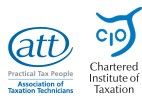The Chartered Institute of Taxation (CIOT) has called for greater clarity before HMRC moves ahead with its latest measure to crackdown on VAT non-compliance by overseas companies that trade online.
HMRC is considering a new measure called a split payment model. This will mean VAT will be extracted from the price paid by consumers in real time using card payment technology and then deposited with HMRC. It is the latest attempt by the Government to reduce VAT losses from overseas businesses selling goods to UK consumers via online marketplaces, estimated to have been between £1 billion and £1.5 billion in 2015-2016.
The CIOT has urged HMRC to continue to engage with the tax profession on the change as the original consultation left many unanswered questions. In particular, the timing of the consultation meant crucial opportunities to clarify and explore issues with HMRC have been lost because of General Election purdah rules.
The unanswered questions include whether any split payment model would be limited to sales of goods situated in the UK by overseas suppliers, or whether it would apply to a much greater range of online sales.
Alan McLintock, Chair of CIOT's indirect taxes sub-committee, said:
"HMRC should continue to engage with the tax profession and other stakeholders on this measure so that the many unanswered questions about this radical change can be addressed before legislation is drafted.
"While split payment might accelerate and secure the payment of tax to HMRC, thus reducing noncompliance, it will inevitably bring complexity for businesses, payment handlers, advisers and indeed HMRC. While the CIOT supports in principle ensuring the correct tax is paid, it is vital that these complexities, and costs are fully understood before the split payment method is progressed by HMRC, to ensure that the benefits significantly outweigh the costs."
In its recent submission to HMRC, the CIOT said that careful consideration should be given to mitigating the impact on businesses, particularly managing adverse cash flow impacts because split payment will reduce, eliminate or even reverse the cash flow effects of VAT for many businesses.
The CIOT supports action by HMRC to tackle fraud. The CIOT suggests that the split payment rules should apply to overseas sellers first or only, so it is targeted at those with the greatest risk of
non-compliance. It will ensure that largely compliant UK businesses (who represent the majority of sales to UK customers) will be either unaffected, or affected only once the regime has been properly implemented for overseas sellers.





